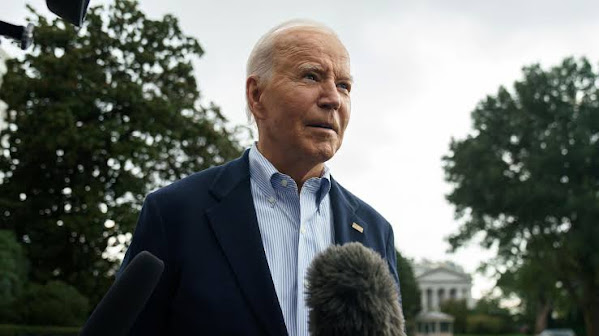## Introduction
In recent weeks, escalating tensions between the United States, Israel, and Iran have prompted discussions within the Biden administration regarding potential Israeli airstrikes on Iranian oil facilities. This development comes amid rising concerns over Iran's nuclear ambitions and its ongoing support for proxy groups throughout the region. As the Biden administration navigates this complex geopolitical landscape, the implications of such military actions could reverberate far beyond the immediate region, affecting global oil markets and international relations.
## Background: Iran's Oil Industry and Global Implications
Iran’s oil sector has long been a focal point of its economy, providing a significant portion of the country’s revenue. The Islamic Republic has faced stringent sanctions, particularly under the Trump administration, which aimed to cripple its oil exports. However, reports suggest that Iran has found ways to circumvent these sanctions, exporting oil to countries such as China, which has allowed its economy to remain somewhat resilient despite international pressures.
### The Geopolitical Stakes
The discussions surrounding potential strikes are rooted in broader concerns over Iran’s influence in the Middle East. Iranian-backed militias in Iraq, Syria, and Lebanon pose significant challenges to U.S. and allied interests in the region. The Biden administration’s strategy aims to counter Iran’s activities while navigating the delicate balance of maintaining relations with allies such as Israel and Arab Gulf states.
## Biden’s Remarks and Strategic Implications
In a recent press briefing, President Biden confirmed that the U.S. was in discussions with Israeli officials regarding the possibility of strikes against Iranian oil infrastructure. "We are exploring all options to prevent Iran from becoming a nuclear power and to limit its ability to fund proxy groups," Biden stated. This revelation has raised eyebrows among international observers and analysts, who are concerned about the potential repercussions of military action.
### The Nature of the Threat
The Biden administration’s primary concern centers around Iran's nuclear program and its alleged ambitions to produce nuclear weapons. While Iran insists its program is for peaceful purposes, many Western nations, including Israel, view it as a direct threat. The oil facilities are seen as critical infrastructure that could fund Iran's military and paramilitary activities, thereby posing a dual challenge: economic and strategic.
## Israel's Perspective
### Historical Context
Israel has long viewed Iran as its most significant threat, citing concerns over its nuclear program and support for groups like Hezbollah and Hamas. The Israeli government has consistently advocated for a strong stance against Tehran, urging the international community to take a more aggressive approach. Israeli officials have reportedly expressed interest in conducting strikes to disrupt Iran’s oil exports, thereby weakening its military capabilities.
### Military Capabilities and Readiness
Israel possesses advanced military capabilities, including precision-guided munitions and sophisticated intelligence-gathering technology, allowing it to target strategic sites with relative efficiency. Israeli Defense Forces (IDF) have conducted similar operations in the past, targeting facilities in Syria and elsewhere to preemptively neutralize threats.
## Potential Consequences of Strikes
### Regional Fallout
Any military action taken against Iranian oil facilities could lead to significant regional fallout. Iran has consistently vowed to retaliate against any perceived aggression, which could manifest in various forms, including increased attacks on U.S. assets in the region, cyber operations, or support for its proxy forces to escalate tensions in neighboring countries.
### Impact on Oil Markets
A strike on Iranian oil infrastructure could also send shockwaves through global oil markets. Iran is a key player in the oil supply chain, and any disruption could lead to price spikes and increased volatility. Such fluctuations would have far-reaching effects on economies worldwide, particularly those heavily reliant on oil imports.
### Escalation of Conflict
Military strikes could potentially spark a broader conflict in the region. Both Iran and Israel have a history of engaging in tit-for-tat retaliations, and an Israeli strike could provoke a wider military confrontation involving various regional actors. The possibility of a wider conflict raises concerns about U.S. military involvement and the safety of American personnel and assets in the area.
## Diplomatic Repercussions
### Responses from Allies
Allies in the region, particularly Gulf states like Saudi Arabia and the UAE, may welcome a more aggressive U.S.-Israeli stance toward Iran. However, these nations also fear the consequences of escalating military action, particularly if it destabilizes the region further. The Biden administration must carefully gauge the reactions of these partners while pursuing its objectives.
### Impact on Nuclear Negotiations
The discussions surrounding strikes could further complicate ongoing negotiations regarding Iran's nuclear program. While the U.S. has expressed interest in returning to a nuclear deal, military action could derail these efforts and push Iran to abandon any diplomatic dialogue, deepening hostilities.
## Conclusion
As the Biden administration contemplates the possibility of Israeli strikes on Iran's oil facilities, the stakes are incredibly high. The strategic, economic, and diplomatic implications of such actions could reverberate across the Middle East and beyond. With tensions already running high, any military action would require careful consideration of the potential consequences and a comprehensive strategy to manage the fallout.
The situation remains fluid, and as discussions continue, the world watches closely, aware that the choices made in Washington and Jerusalem could reshape the geopolitical landscape for years to come. The Biden administration must balance the urgency of addressing Iran’s activities with the need for stability in the region, a challenging task in an already volatile environment.





![Judge Judy [Episode 9987] Best Amazing Cases Season 2O24 | Jealousy Fueled Vandalism?!](https://blogger.googleusercontent.com/img/b/R29vZ2xl/AVvXsEiY8kKFBaBTXeSucWJH7pK5A_7omgtcGAy-i-pji4mHU5EjmtNglInfteHOhSSa9B7tyKYAHA2uBGArNxni66CW9yPww9OtHZzf_QeNhIE2eoKA_CSKxzKlg7iKQ8fApD5jNyJQ8rPlfRijWwtancb8G0YYQKBvGbjerU1UO50PGjOYJnIbaMvgmT70ShQ/w72-h72-p-k-no-nu/hq720.jpg)



0 Comments